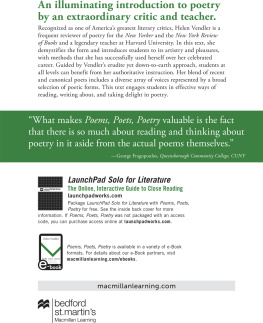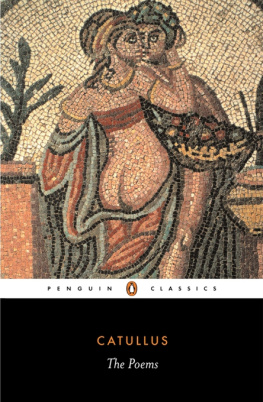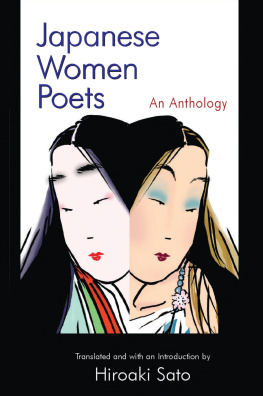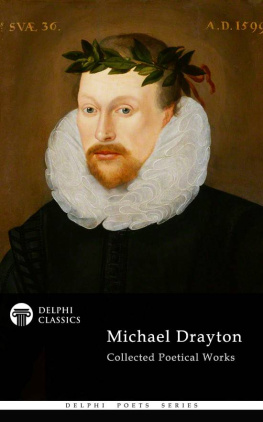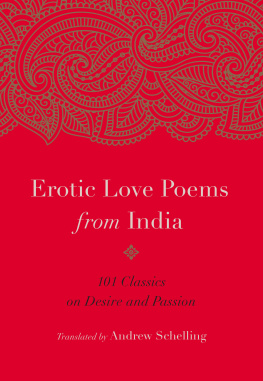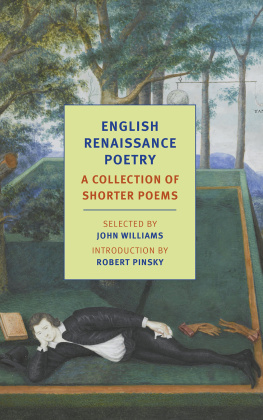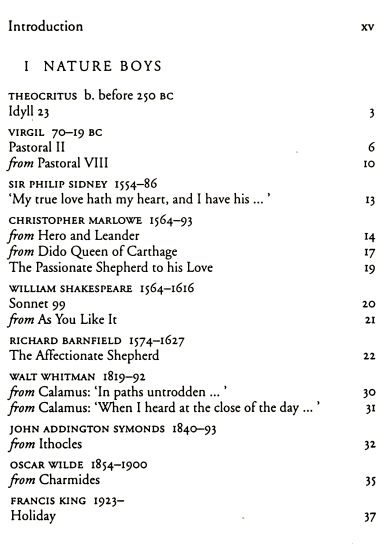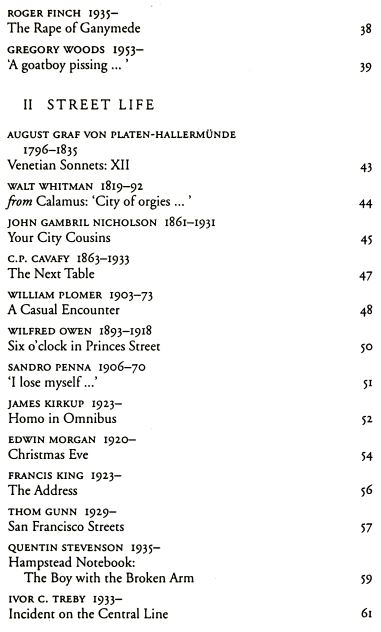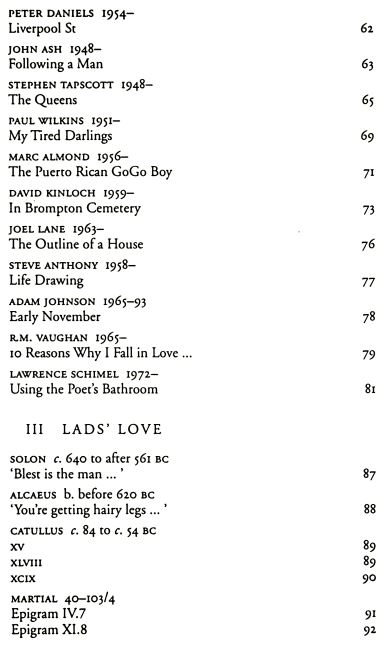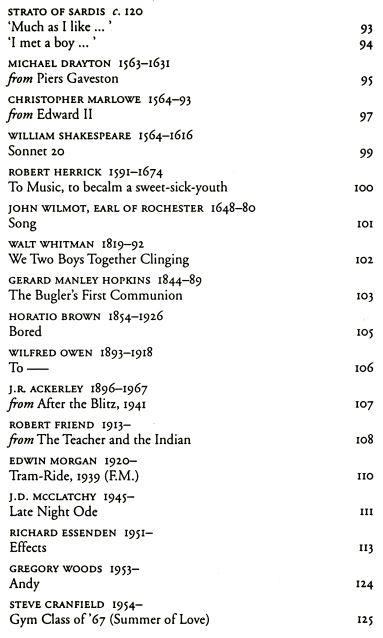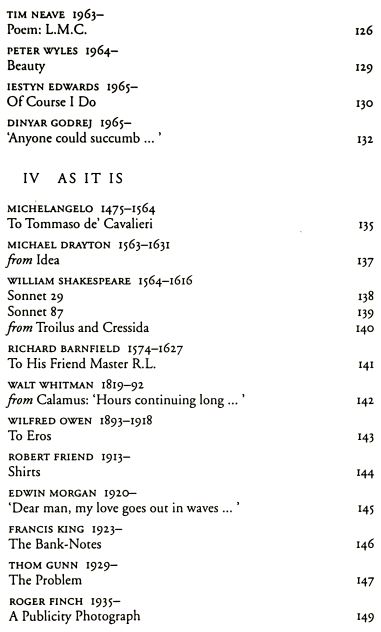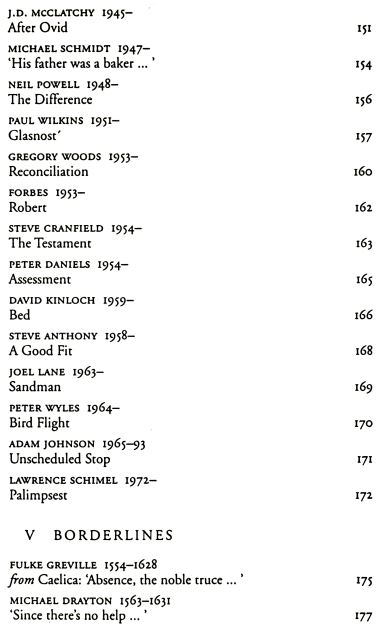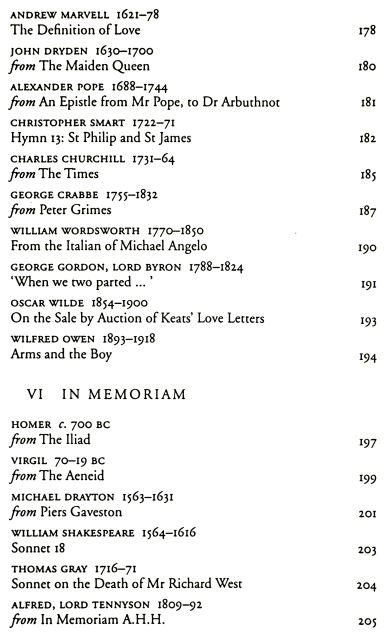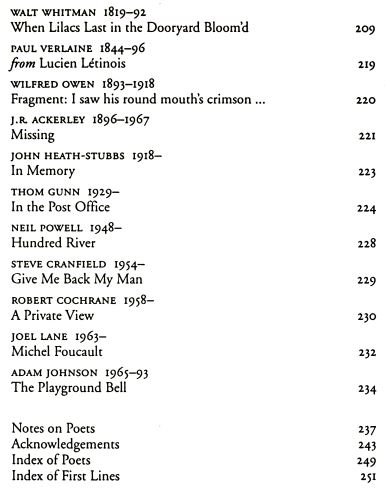Gay Love Poetry
neil powell is the author of four books of poetry, a novel, a study of contemporary English poetry and a critical biography, Roy Fuller: Writer and Society (1995). He lives in Suffolk.
Also by Neil Powell Poetry AT THE EDGE A SEASON OF CALM WEATHER TRUE COLOURS THE STONES ON THORPENESS BEACH Fiction UNREAL CITY Biography & Criticism CARPENTERS OF LIGHT ROY FULLER: WRITER AND SOCIETY Editor SELECTED POEMS OF FULKE GREVILLE
Gay Love Poetry
Edited by Neil Powell CARROLL & GRAF PUBLISHERS, INC. New York
Carroll & Graf Publishers, Inc. 260 Fifth Avenue New York, NY 10001 First Carroll & Graf edition 1997 First published in the UK by Robinson Publishing Ltd 1997 Selection, introduction and editorial matter Neil Powell 1997 The moral right of the editor has been asserted. All rights reserved.
No part of this publication may be reproduced in any form or by any means without the prior written consent of the publisher. A copy of the Cataloging in Publication Data for this title is available from the Library of Congress. isbn 0-7867-0469-1 Printed and bound in the EC 10 9 8 7 6 5 4 3 2 1
for Nick: vanishing trick
CONTENTS
INTRODUCTION
____________________________ An anthologist should declare his principles, if only to assist his critics in their task of demonstrating how thoroughly he has betrayed them. The first thing to say about Gay Love Poetry is that Ive taken liberties pardonable ones, I hope with my title: gay has had the sense of male homosexual for a good deal longer than its enemies pretend, certainly since the late nineteenth century, but for the purpose of this book I have applied its convenient shorthand to poetry written as far back as the eighth century bc; and I have allowed love to encompass as wide a range of affectionate relationships as possible. That double inclusiveness has enabled me to gather together a more various and more interesting group of poems than is usual in anthologies of this sort. The poems are arranged in six broadly thematic sections, each with an introductory note; within each section they are printed in chronological order of their authors births, although Ive made a few deliberate exceptions among twentieth-century poets.
While the thematic groupings offer intriguing juxtapositions, the sequences within them provide some sense of historical development. The first and last sections, Nature Boys and In Memoriam, essentially comprise pastorals and elegies the two oldest and most enduring forms of gay love poetry while three others explore somewhat looser categories; the sixth, Borderlines, consists mainly of poems which may not have been conceived by their authors as about gay love but which have certainly been so interpreted by grateful readers. For reasons to do equally with the histories of homosexuality and of literature, three eras are predominant here: the classical age in Greece and Rome; the sixteenth and early seventeenth centuries in England; and the period from the mid-nineteenth century to the present. In the first two cases, I have included both the work of major writers and some lesser-known and possibly unexpected pieces; in pre-eighteenth-century texts, spellings which might be obstructive to the general reader have been modernized. The third is deliberately weighted towards poems published or collected here for the first time, rather than those which are readily accessible elsewhere; it is also drawn more from Britain than from America, partly because these are the writers I know best, but also because several anthologies of gay poetry have appeared in the USA during recent years and my guess is that readers there will welcome the less familiar work included here. One of the pleasures (at first hoped-for rather than confidently anticipated) of assembling this book has been discovering the quality and diversity of recent writing which would be offered for it: among the newly collected poems here are several which seem to me outstanding as well as others, perhaps less completely distinguished, which IVe liked for particular qualities for catching their specific moment or for an irresistible line or image.
In other words, every poem has earned its place. Inevitably, there are a few missing persons writers who didnt receive or reply to my letters, who werent happy about contributing, or whose publishers were unwilling to grant affordable permissions but Id like to suspect that on the whole they may regret having missed this particular party. I am especially sorry that W.H. Audens American publishers (Random House, Inc.) refused to allow his work to appear in this book. I am grateful to all the poets, translators and publishers who have allowed material to appear in this anthology; to Mark Crean at Robinson Publishing for commissioning the book; and to Steve Anthony, Peter Daniels, Thom Gunn, Francis King, David Kinloch, Joel Lane, Michael Schmidt, Ivor C. N.P.
I NATURE BOYS
____________________________ The pastoral provides one of the oldest strands of gay love poetry.
I NATURE BOYS
____________________________ The pastoral provides one of the oldest strands of gay love poetry.
The classical tradition of rustic love which is often unreciprocated or obstructed or at least delayed is represented here by Theocritus and Virgil. It was rediscovered and adapted by major writers of the English renaissance such as Sidney, Marlowe and Shakespeare; as well as work by these three, I have included in full Richard Barnfields splendid long poem The Affectionate Shepherd. The Greek myth of Ganymede also surfaces and resurfaces here, either glancingly or centrally, in Marlowes Hero and Leander and the opening of Dido Queen of Carthage (grouped here for that reason, though it isnt otherwise a pastoral scene), Shakespeares As You Like It and Roger Finchs The Rape of Ganymede. The As You Like It extract, incidentally, may at first seem an odd choice: but it is a deliciously concise example of the gender-masking which so permeates Shakespeares comedies as well as a moment of high pastoral pastiche. Wildes Charmides, though not wholly a gay text, was the authors own favourite poem ... the most perfect and finished; the very beguiling extract printed here perhaps suggests why.
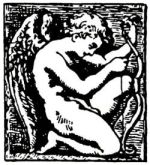
THEOCRITUS Translated by Thomas Creech Idyll 23 An amorous shepherd lovd a charming boy, As fair as thought could frame, or wish enjoy; Unlike his soul, ill-naturd and unkind, An angels body with a furys mind: How great a God Love was, he scornd to know, How sharp his arrows, and how strong his bow, What raging wounds he scatters here below.


